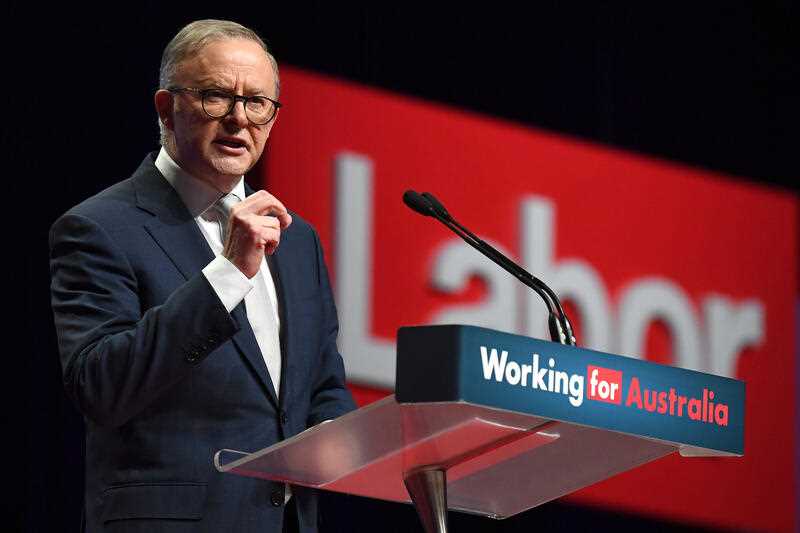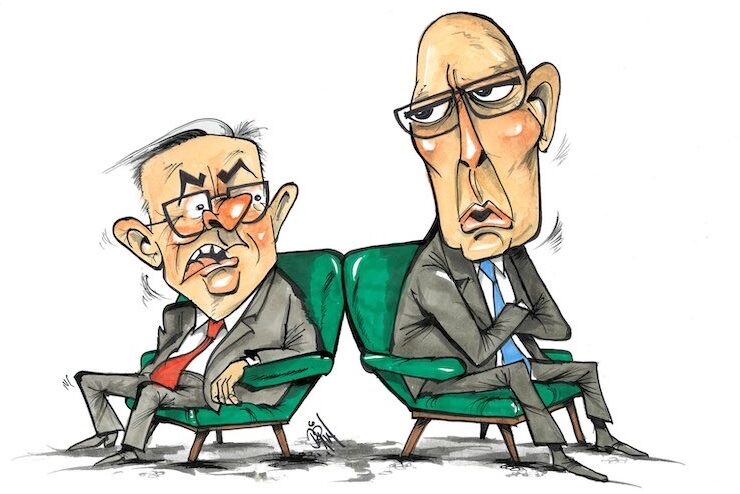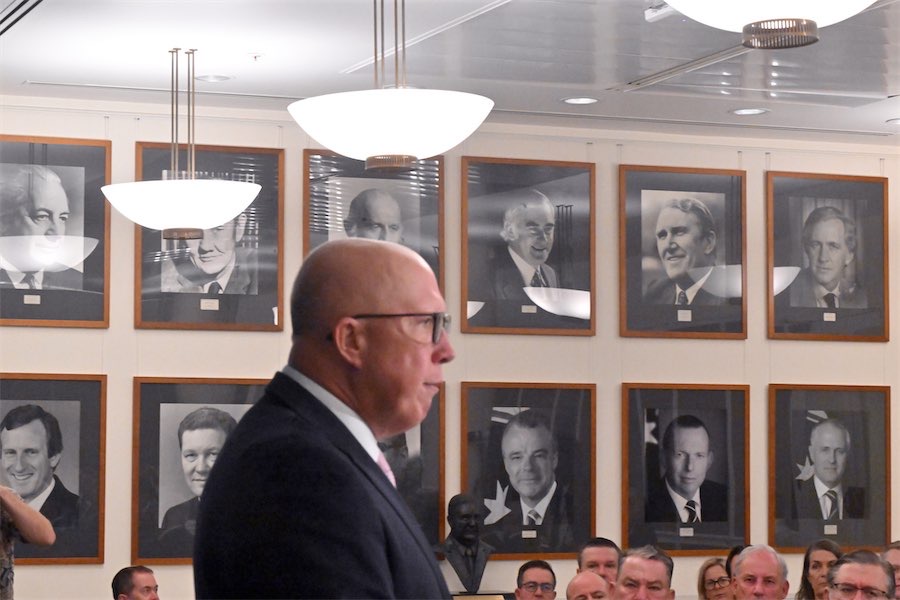
Anthony Albanese is determined to keep Labor’s eyes firmly focused on a second term, writes political columnist MICHELLE GRATTAN.
LABOR is less than halfway into its first term, but Anthony Albanese is focused, laser-like, on its second one. Securing it, that is.

His message to delegates at the party’s national conference on Thursday was, in essence: be patient, don’t rock the boat, you shouldn’t expect the government to do all you want all at once.
And, above all, realise that if this is just a short-term government, what it achieves can be quickly negated by the other side.
“Each of us understands that winning and holding government is not only true to our principles, it is essential to fulfilling them”, Albanese said in his keynote address.
“Equally we know what we have begun can be undone, unless we are there to protect it.”
Underlining his point, Albanese spelled out the differences between a short-term and a long-term Labor government.
- The difference between a moment of progress – or a lifetime of opportunity.
- The difference between laying the foundation – and finishing the build.
- The difference between taking the gender pay gap to an historic low. And making the gender pay gap history.
- The difference between writing an emissions reduction target into law. And seeing it achieved in new jobs and clean energy and a healthier environment.
It all amounted to whether Labor shaped the future – “or the future shapes us”. To be there for the long term depended on “bringing people with us” and “earning and repaying people’s trust”.
Albanese acknowledged that “this approach mightn’t suit those who prefer protest to progress, who imagine grand gestures and bold declarations are better than the patient work of ensuring lasting change.”
The prime minister’s pragmatic sentiments were a million miles from those the youthful Albanese would have expressed. Then again, this Labor conference is a far cry from those of decades ago when then prime minister Bob Hawke and treasurer Paul Keating had to fight for their policies against critics on what was a tough and vocal left. They won, but the fights could be hard.
So far, this conference has been docile, compliant, and highly managed with approved speaking lists. Even though the left has the numbers (for the first time in decades) the government is firmly in the driving seat.
Remarkably – or perhaps not – when the party’s economic platform was discussed on Thursday morning, issues such as the need for comprehensive tax reform were not front of mind.
Stage 3 tax cuts actually didn’t even get a mention, despite being hotly contested in the public discussion.
The CFMEU had earlier floated a push for a super profits tax to provide money for housing, but the air was taken out of that balloon in negotiations.
The wording of the final motion said blandly: “Labor will increase government investment in social and affordable housing with funding from a progressive and sustainable tax system, including corporate tax reform”.
CFMEU National Secretary Zach Smith said “a permanent solution on social and affordable housing requires us to be more bold” while admitting the amendment was “not everything that the union is demanding”.
On the eve of the conference the government had unveiled initiatives to try to speed up the construction of housing, including increasing the target build from one million new homes to 1.2 million over five years from mid next year. It also announced ongoing work to strengthen renters’ rights.
The Grattan Institute has strongly praised Labor’s plan, saying every extra home will increase supply and so ease rental pressure. Its calculations suggest the extra 200,000 homes could reduce rents by about 4 per cent. But it also notes that while it’s a good plan, “the devil will be in the detail”, to ensure the incentives work properly and there is adequate skilled labour for construction.
It’s not clear whether the housing crisis will do serious damage to Labor as it looks to the next election. The Greens, seeking to seize the mantle of the party of renters, have been predictably critical of the government’s measures. And there is still no resolution of the standoff over the government’s proposed housing fund.
The government is right to resist the demands by the Greens for a rent freeze or caps, but there is little doubt it is vulnerable in the battle for votes among many of the now large renter constituency, especially younger voters.
The Labor conference’s economic debate saw delegates from unions given an extensive speaking role.
Basically, they were happy with the Albanese government, not looking to cause any trouble or stir the pot. The economic debate neither reflected discontent nor was a forum for forward thinking.
Treasurer Jim Chalmers, who kicked off that part of the conference, would be happy with the smooth run the party gave him. However, he often proclaims he is anxious to have “conversations” about important issues for the future.
Next Thursday at the National Press Club, Chalmers will launch the government’s Intergenerational Report, which examines what will happen to Australia over the next four decades.
This one will be the first to attempt to properly incorporate the effects of climate change, and the first of a more regular series of such reports. Chalmers has promised they will be prepared every three years (in the middle of each electoral cycle) rather than every five years as they have been since 2002.
It remains to be seen how willing he will be to grapple with the really tough questions the report is likely to point to.
More immediately, back at the Labor conference, the arm-twisting continued to finalise wording on the AUKUS section of the platform, to be considered on Friday, that is acceptable to the government.![]()
Michelle Grattan, Professorial Fellow, University of Canberra. This article is republished from The Conversation.
Who can be trusted?
In a world of spin and confusion, there’s never been a more important time to support independent journalism in Canberra.
If you trust our work online and want to enforce the power of independent voices, I invite you to make a small contribution.
Every dollar of support is invested back into our journalism to help keep citynews.com.au strong and free.
Thank you,
Ian Meikle, editor







Leave a Reply